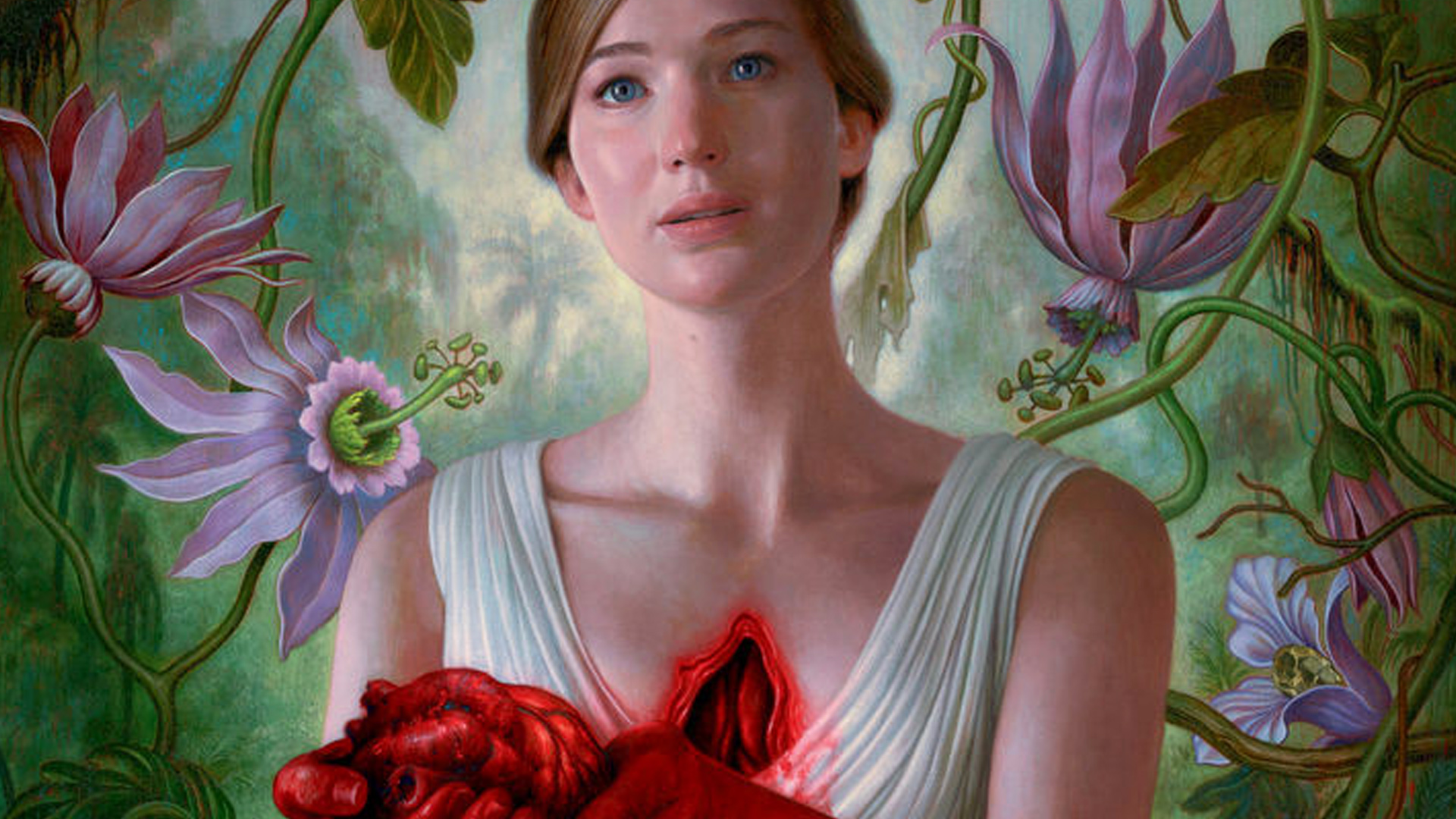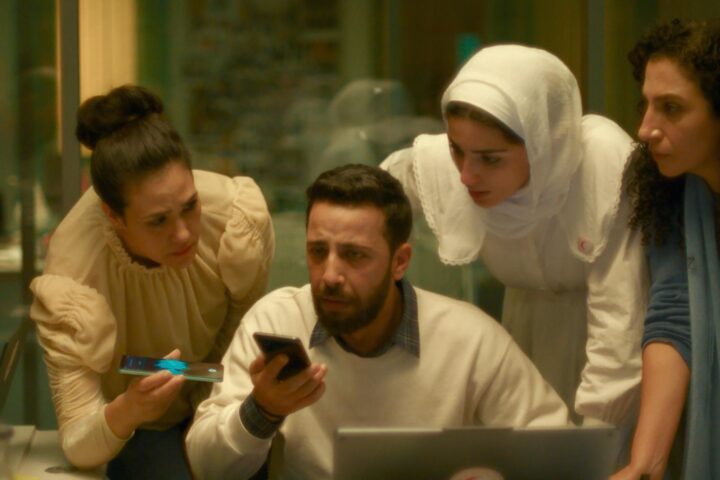A tale told with sound and fury signifying very little, Darren Aronofsky’s mother! may be his first movie misfire. In a career of audacious pictures, proof positive of membership a very small club of contemporary auteurs, Aronofsky is as visionary as they come—even when the vision spirals out of control.
And this time, does it ever. Bold isn’t necessarily brilliant, and mother!, an aggressive kitchen sink repository of obvious social allegory and artistic self-reflection that pushes experimentation and shocks, is an empty horror machine so impressed with its sledgehammer-heavy themes and blazing aesthetic that it becomes an exercise in what might fairly be called directorial mania. Yet for all its ambition and hysterics, it can’t produce one scene of recognizable human behavior—or any reason for us to care.
Jennifer Lawrence and Javier Bardem star as a nameless couple holed up in an old, Victorian home in the country. While Mother (Lawrence) toils away restoring the structure’s visage, obsessing on shades of taupe, Him (Bardem), a frustrated poet and former success now suffering from writer’s block, broods, showing little interest in his much younger wife.
Things take a turn upon the arrival of a bizarrely invasive family of uninvited interlopers, led by patriarch Ed Harris, who claims to be dying and a true fan of Him’s work. Along also is his glamorous, bluntly direct wife, played by Michelle Pfeiffer in her best role and work in decades. The way Pfeiffer toys with Lawrence’s patience and graciousness, scene-for-scene, is a real hoot.
It’s an immediately recognizable situation—obtuse guests lacking in manners and etiquette—and one played for wicked, satirical laughs by the wry Pfeiffer, tossing off passive-aggressive judgments and overstepping every boundary.
Soon the couple’s sons show up (played by a feral Domhnall Gleeson and Brian Gleeson in a Cain and Abel mano-a-mano), an unfortunate death occurs and the visitors are expelled. But the shocking event, and Bardem’s handling of the circumstances, will become a black mark on the relationship.
Things go from bad to much worse when Lawrence becomes pregnant, which reignites Bardem’s creativity leading to the creation of a masterful poem that quickly becomes a major success, attracting all manner of attention—wanted on his part, not on hers. And in this final act, the picture departs from traditional narrative and becomes as radical a mainstream picture as seen in ages, unglued from reality, subtlety and sense.
The final half hour is a phantasmagoric vomit of ideas and imagery rendered with the mastery of a visionary, which is to say superb technique in service of nonsense, a parade of amped up absurdity that severely impacts our ability to take any of Mother’s plight seriously. It is a loud, brutal and increasingly silly succession of atrocities that all but capsize the picture.
Lawrence, shot in close-up throughout, is called upon to convey exactly one thing—rising exasperation—which she does, and well. But her frustration begins about a third into the picture and escalates throughout the remainder taking as much a toll on us as herself; it’s the calibration of an emotion, not a character.
The underlined allegories are made obvious, and then made obvious again, including: the rapacious ego of an insecure artist and its devouring effects on a relationship and family; the toxic hunger for fame and its consequences; zealous fandom and the cancer of celebrity worship; the shallow pursuits of materialism; the brazen inconsideration of modern Americans; the fear of loss of privacy, home invasion and a militarized state; the relationship between creator, subjects and domain, which includes an Eden-like paradise destroyed by its reckless denizens.
Comparisons to Polanski’s eternal Rosemary’s Baby are inevitable, and indeed mother! leads to a similar climax of paranoia and cultist depravity. Lawrence has called the film “feminist” in some circles, but that seems as much of a stretch as Aronofsky’s suggested global warming parable. Well, maybe. Or maybe not.
But instead of the meditation on—take your pick—whatever it thinks it is, mother! plays mostly like an extended Twilight Zone episode, which makes sense given that Aronofsky reportedly drafted the screenplay in six days and from a collection of modern maladies bothering him and for which he saw no solutions. Throughout the picture we are never convinced of anything onscreen; the directing of actors and contextual absurdity is so intentionally broad that it all feels like a put-on, robbing us of any deeper investment in its people or Lawrence’s plight.
In the end, mother! is nothing more than an assemblage of ideas that never becomes substantively compelling enough to merit interest as a narrative, and is leagues below Aronofsky’s best picture, Requiem for a Dream, and his most popular, Black Swan. Like mother!, both of those pictures deal in the extremities of obsession. But unlike either, the new film is cardboard.
It’s horrifying all right, but not as intended.
2 stars.



